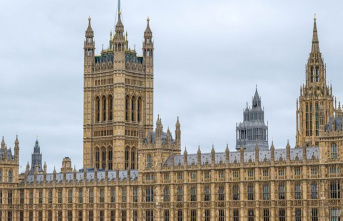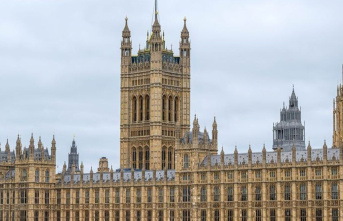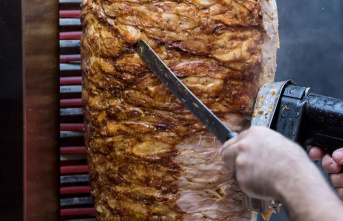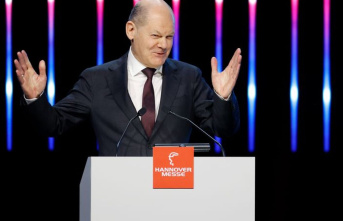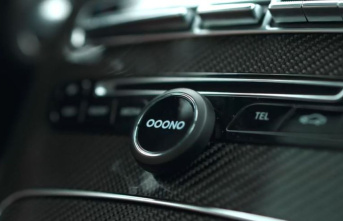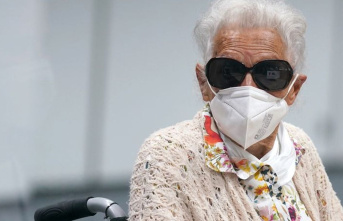No, the Capitol Attack Committee of Inquiry cannot bring Donald Trump to court. He can only recommend that the Justice Department indict the ex-President of the USA. No more, no less. And yet the panel's actions are remarkable -- and unique in United States history.
The House of Representatives committee accuses the 76-year-old of four serious crimes, putting the Justice Department under pressure. If Trump is ever convicted of the riot offense, he would be barred from political office in the United States. But anyone who thinks that Trump's candidacy for the White House is slipping should be careful.
It has been almost two years since a violent mob stormed the Capitol in the US capital Washington. As a result of the riots on January 6, 2021, five people lost their lives. It was two long years without any criminal consequences for Trump. "President Trump lit the flame. He poured gasoline on the fire and sat for hours in the White House dining room watching the fire burn," Democrat Elaine Luria said at the committee's final public hearing on Monday. And even today, Trump would continue to fan those flames with his lies.
For a year and a half, the panel meticulously collected evidence and, according to their own statements, interrogated more than 1,000 witnesses. The committee presented its evidence in several public hearings staged as TV spectacles. For the finale, he showed a kind of best-of and came to the conclusion: Republican Trump knew that he had lost the 2020 presidential election to his Democratic challenger Joe Biden. He has pressured the Justice Department and government officials. He set a mob on the Capitol hoping they could do for him what he couldn't do himself: overturn the election results.
These are serious allegations that Trump naturally rejects. That the committee is now asking the Justice Department to prosecute Trump over this is unprecedented. "On the other hand, never in our history has a president tried to prevent the peaceful transfer of power," writes the Washington Post in an opinion piece. If Special Counsel Jack Smith now decides not to indict Trump, he must explain why his verdict differed from that of the committee. Smith is currently reviewing Trump's conduct around the election and January 6, 2021.
Trump wants to be president of the USA again. He declared his candidacy for the 2024 election in November. He dismisses the allegations against him as political persecution. And yes, there are seven Democrats on the committee and only two Republicans. This is mainly because the Republicans in Congress torpedoed the body more or less from the beginning. A new Congress meets in January, the Democrats have lost their majority in the House of Representatives. The Capitol Committee is then history. He now had to act and decide whether to pull out the last straw and recommend that the ministry prosecute Trump.
It is completely open when the Justice Department will make a decision on how to proceed. However, the committee's allegations should not be new to the ministry - it has been examining possible offenses for months. One thing is certain: it will only bring charges against Trump if it is one hundred percent sure of its case. And even then, a long legal battle is likely to follow before Trump could theoretically end up in prison. An indictment alone is also not enough to disqualify Trump from running for the White House or for office. What matters is what Trump would be convicted of.
An amendment to the US Constitution says that no one who has taken an oath to the Constitution and has participated in any riot or rebellion against it may become US President. It is therefore of great importance that the committee wants to take Trump to court for sedition. But even if he were convicted, there is bound to be acrimonious legal battles over whether or not this amendment to the Constitution applies to Trump.
But Trump still has various other legal construction sites that could become a problem for him - including the dispute over government documents. There is a federal law that prohibits anyone convicted of willingly removing government records from holding political office. Special Counsel Smith is also considering whether Trump should stand trial for violating this federal law. During a search of Trump's private rooms at his Mar-a-Lago golf club, the FBI federal police also confiscated documents marked "Secret" and "Top Secret" from his tenure.
But even if Trump were convicted in this case, that doesn't mean anything. Because some legal scholars argue that the Constitution trumps federal laws — and it says nothing about taking government documents with you as a disqualification from political office. Here, too, courts are likely to have the last word. So the question at the moment is to what extent the legal wrangling and the actions of the Capitol Committee are hurting Trump in his party - and ultimately among voters. Only time will tell.


